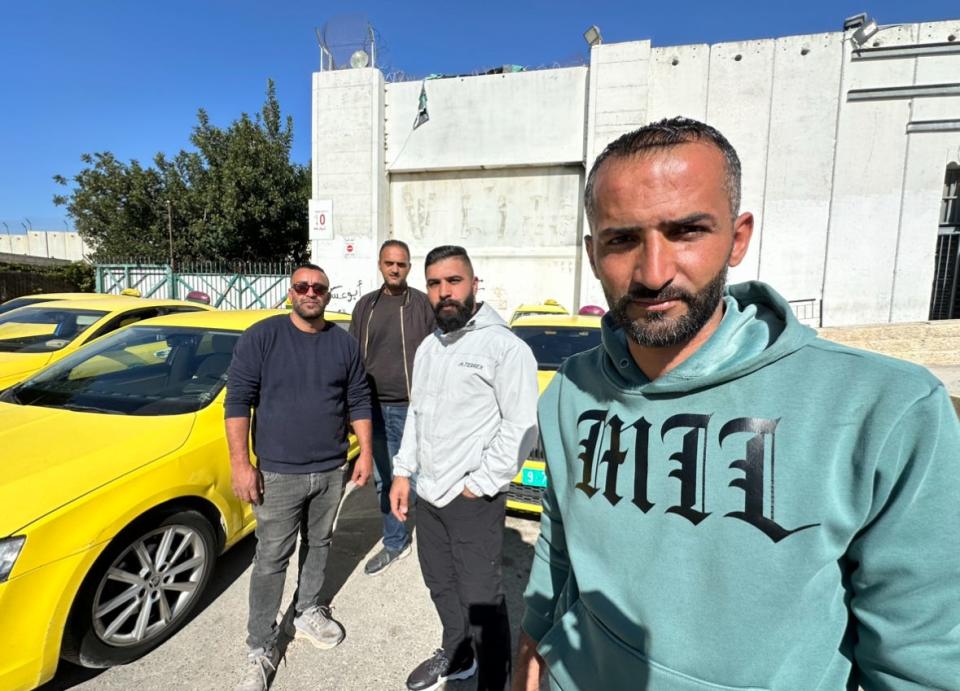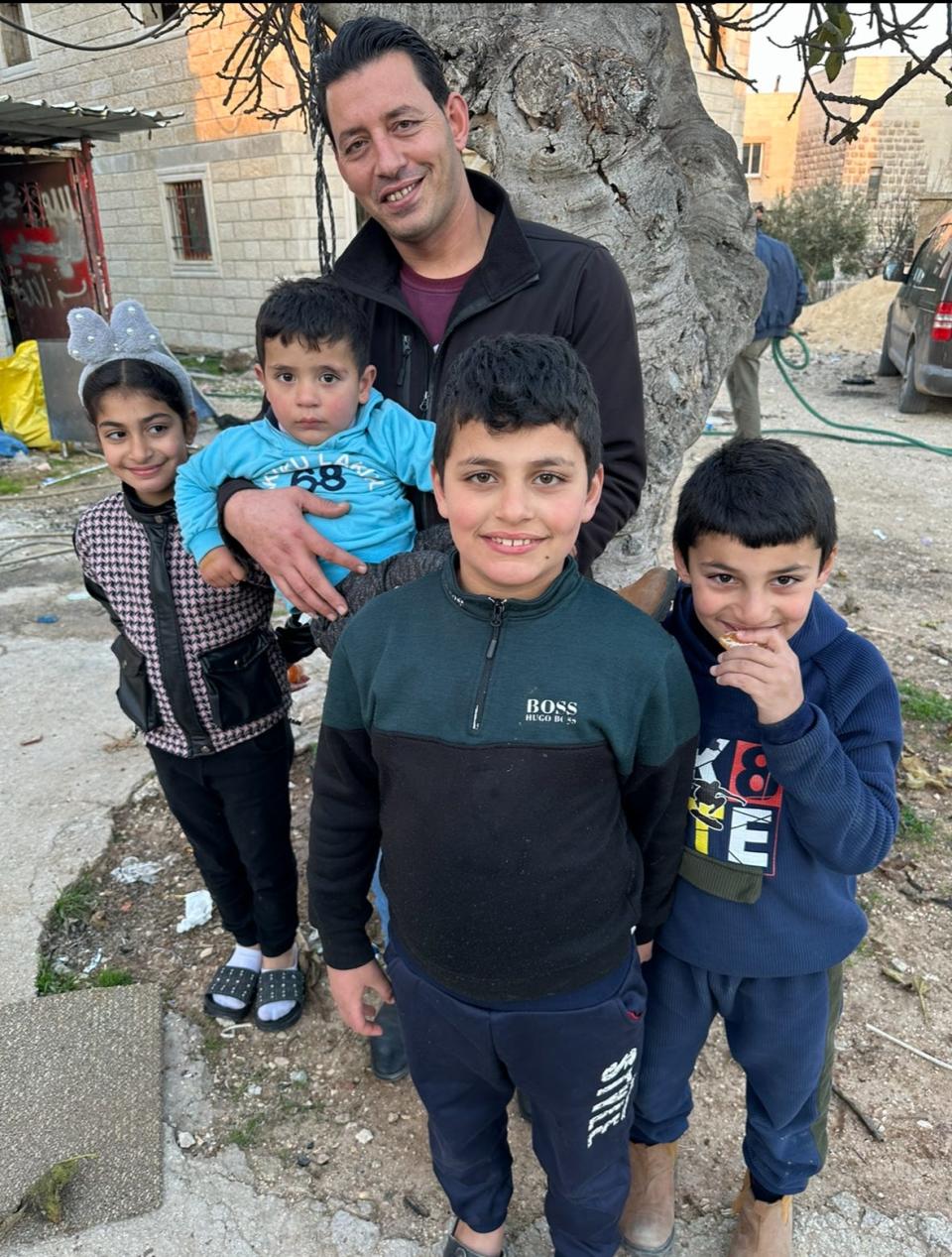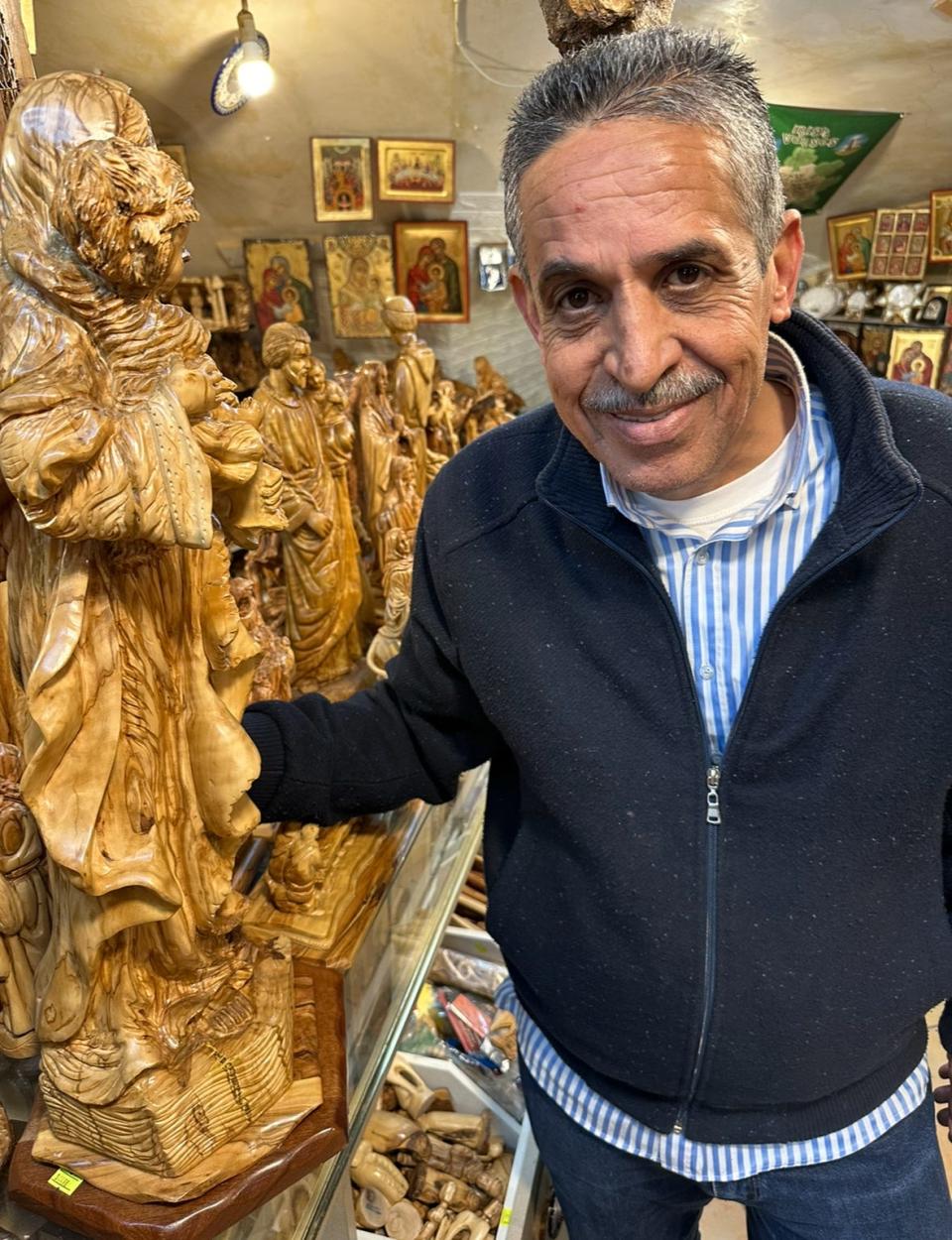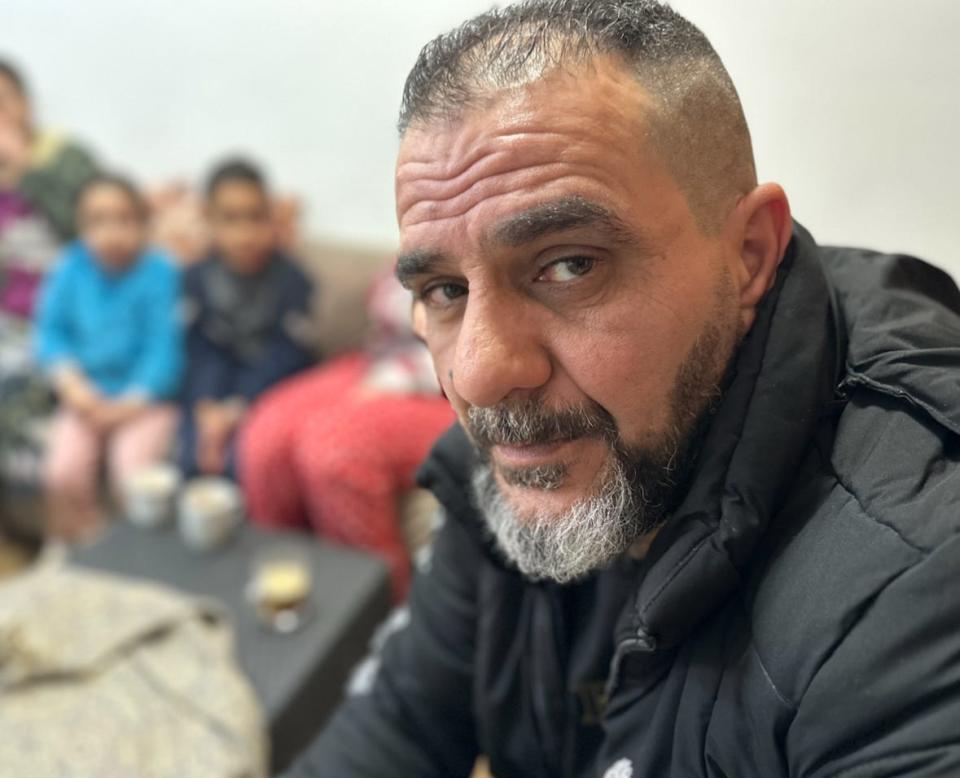Mark Patinkin in Israel: Trip to Bethlehem reveals Palestinian warmth amid loss
I have written columns defending Israel, but as a journalist on the ground, I am here to understand, and so I went to the West Bank.
To where Jesus was born.
There is a tendency to think of Bethlehem as part of Israel – some picture it near the Western Wall, but it’s not like that. It’s beyond the border, an all-Palestinian town with three refugee camps, and Jewish settlements encroaching.
To get there, you take a cab out of Jerusalem for a half-hour, then walk through a dark boundary tunnel, like a subway corridor, pushing through one-way revolving door turnstiles. I am the only one, which feels eerie. My footsteps echo.
But because I’m leaving Israel, no soldiers are checking. Out is fine. In – different story.
The moment I emerge, I’m surrounded by Palestinian cab drivers. They wonder why I’m here – tourists haven’t come to Bethlehem since Oct. 7.
An American journalist, I tell them.

At that, they want to talk. Why, asks one, is my government funding bombs killing babies in Gaza?
The others tell him to be careful – he could be imprisoned for saying that to the press.
“We just wish the war to finish,” he says. And adds: “Because no one will win.”
He gives his name as Ahmad Joseph, saying he now struggles to support his three young kids. There’s no work. Blocked roads have turned 30-minute trips into four-hour ordeals. And there’s been a surge in Palestinians arrested and shot in Israeli police raids. That’s the West Bank right now.
After 10 minutes, it’s time for me to move on.
Hopefully, Ahmad says, we will see each other again when there is peace, Inshalla.
I had wanted to see the West Bank authentically, so instead of hiring a guide, I connected to an average soul, who is waiting to meet me.
His name is Omar Zawharah, 39, a Palestinian Muslim and public high school teacher.
As with everyone here, it’s a bad time for him.

After Oct. 7, Israel froze West Bank tax revenues, which halved Omar’s pay to $300 a month. Others face worse. With the border sealed, countless folks – mostly construction workers – have lost jobs in Israel, their income zeroed out. Palestinians call it collective punishment.
They’re not wrong.
And with tourism dead, Bethlehem is among the West Bank’s most depressed places.
Although Christianity was born here, Bethlehem is majority Muslim today, yet Omar tells me its DNA is tolerance. There is not just one book, he says, but the Quran, the Torah and the Holy Bible.
Indeed, our first stop, the Church of the Nativity, built on the manger’s biblical site, sits opposite a mosque.
As we approach it through a vast plaza, Omar points to a curious symbol of loss – a single pigeon. Before Oct. 7, he says, the square filled with thousands of tourists and as many pigeons. Now, virtually none of either.
I apparently stand out as an American because people start approaching us – a child selling rosary beads and now an older man named Kal Yousef. Please, he says – come see what I have for you.
“We love everyone who visits,” he tells me, “even if you are Jewish, we say welcome to you.”
We follow him to his antiquities store, a prime location when things were good. No longer.
How hard have these last months been?
“The hardest,” he says. “Of my life.”
I decide to spend many hundreds of dollars for a Star of David set on ancient Jerusalem glass.
It’s his biggest sale since Oct. 7.

Omar arranged for me to visit a friend’s home, which is what I’d hoped for – to experience the culture.
The man has five sons, says Omar. Three of them are in Israeli prisons. Many families have at least one, now more than ever with 5,000 West Bank arrests since the war.
To meet him, we drive into one of the refugee camps, though it’s not what you picture. There are no gates, fences or makeshift shelters. Having been created in 1948, it’s now a developed neighborhood blended with the city.
Omar assures me the area is safe, and indeed, although I stand out, I’ve felt no threat on the West Bank.
One of the other Bethlehem camps, he says, is more radical.
“How come?”
They have more martyrs – fathers, brothers or mothers killed by Israeli soldiers or police. That, Omar explains, is the seed of it.
We chat about his work as a history teacher, and his three young kids. He’s a lovely man and devoted dad.
Soon, we arrive and meet Fayez al Dibs, in his 50s, the friend with three sons in prison – ages 22, 19 and 16. We follow him up stone stairs to the home’s second floor. Fayez needs to pause halfway up. He was shot in the calf by Israeli police when he intervened during the arrest of one of his sons. He pulls up his pants cuff to show me the still-purple mark.
We sit in the living room, and soon, eight more folks join us, intrigued by my visit. Then it’s 15. Omar explains it’s the culture – extended families live on several floors of the same building.

They offer us strong Arabic coffee, then tea, and then big plates of spiced chicken and rice with nuts – just for the two of us.
As I start to jot some notes, Omar whispers in a kind tone to put the pen down.
“You must eat.”
One honors one’s hosts by focusing on the meal. So I do, and the food just keeps coming.
Fayez introduces me to two brothers-in-law, and I ask their professions. They were both in construction in Israel, but that’s gone now.
Women join us, too, all saying the same word to me. I’ve never been hit with so many welcomes.
I ask if they were all born here. Yes, but their patriarch had land in Tel Aviv, which they see as their ancestral home.
“But they took it,” one says. In 1948.
“They?”
“The Jewish.”
Palestinians love to smoke too. It’s all about cigarettes, hospitality and food.
A woman named Mona says she’d like to ask me a question.
Of course.
Why does my government support what’s happening in Gaza? And why seal off the West Bank – she can’t go to Israel now for needed health care.
“They punish us here for what happened Oct. 7,” she says.
Yet she keeps offering a smile.
One of the men strokes his beard and says it’s a new one. Without work, he’s let it grow to save money on razor blades. Since Oct. 7, they tell me, there are a lot more beards on the West Bank.
More folks come in – 20 in the room now. Palestinian culture is beginning to feel like an episode of "Friends."
Laughing, I ask where everyone’s arriving from.
“Family, family, family,” explains one of the women.
I turn to Fayez to ask about his sons. He shows me a video taken from an upper floor of one being led off by soldiers in a night raid. Fayez thinks it’s related to Facebook posts. But they often aren’t told. It can go that way for months or more – no communication or visits.
The sons, he said, were at a point of beginning to help support him, and now he’s lost that, an especially hard thing since his work as an electrician in Israel has been cut off.
We linger, because that’s the culture too, but when it’s at last time to go, one of the warmest goodbyes is from Mona. She hopes we’ll meet again.
Omar’s home village is outside Bethlehem, and we head there before I leave. Because Jewish settlements have made Swiss cheese of West Bank land, we have to go through an Israeli checkpoint. When we’re a few cars from reaching the soldiers, I point at some new buildings on a hill to ask what they’re about.
Quickly, Omar pulls my arm down.
“Never point,” he says. Israeli soldiers have been jumpy since Oct. 7 and from 20 yards away, could mistake pointing for a gun.
As we drive, there are more Jewish settlements than I realized. Omar uses an Arabic word to describe how they keep expanding.
“Shway, shway,” he says. Little bit, little bit.
The latest: Hamas official rejects 2-state solution, says militants won't recognize Israel
At Omar's home, his wife, Noor, gives me a carry-away dinner of lamb and stuffed cauliflower leaves in an old plastic ice-cream container. It proves a saving grace because it’s Friday night and basically every restaurant in Jerusalem is closed for Sabbath.
It’s dark as we approach the isolated West Bank intersection where I’ll catch a bus back. The trip will involve a checkpoint where everyone gets off and back on.
The intersection is a scruffy spot, but as I look around, something occurs to me. Despite poverty, I saw no one homeless this day – not even one person. Indeed, Omar says that doesn’t exist on the West Bank.
“We look after each other,” he explains.
Then he waits with me a full half-hour until the bus emerges from the dark.
It’s the final impression I’m left with after a day on the West Bank among Palestinians.
So much loss.
But in the midst of it, so much warmth.
Mark Patinkin is traveling to Israel personally and is not sponsored by or affiliated with any organization. He will report firsthand from the region as he has done for the last four decades through his award-winning journalism. He can be reached at mpatinki@providencejournal.com.
This article originally appeared on The Providence Journal: Visit to Bethlehem gives Mark Patinkin view of Palestinians during war

